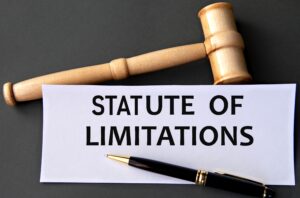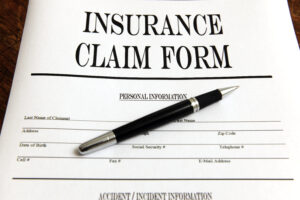In California, you generally have two years from the date of the car accident to file a lawsuit to claim an injury. This critical deadline, known as the statute of limitations, has exceptions that can shorten or lengthen your time to act.
A personal injury lawyer helps you identify the specific car accident claim deadline that applies to your situation and protects your right to pursue compensation.
Insurance company deadlines and legal deadlines aren’t the same. A lawyer offers clarity on these complex issues, challenging any attempts to deny your claim and working toward a fair resolution for your delayed injury claim after an accident. They manage the details so you can focus on healing.
Schedule A Free Case Consultation
Key Takeaways
- The discovery rule may extend your deadline if your injury was not immediately apparent after the crash.
- Claims against government entities, such as the City of Bakersfield, have a much shorter deadline.
- Insurance policies have their own separate and often much shorter time limits for reporting accidents and injuries.
- Missing the legal deadline, or statute of limitations, typically means you lose your right to sue and recover compensation forever.
The Statute of Limitations in California Explained

California Code of Civil Procedure 335.1 sets the primary statute of limitations for personal injury cases. This law gives an injured person two years from the date of the incident to file a lawsuit against the at-fault party.
If you were injured in a crash on the Westside Parkway on May 1, 2025, you have until May 1, 2027, to initiate formal legal action. The deadline for filing a lawsuit after a car accident is strict.
What Is the Discovery Rule?
Sometimes injuries aren’t obvious right away. You may experience delayed pain after a car accident, with symptoms of a traumatic brain injury or a herniated disc appearing weeks later. This is where California’s discovery rule may help.
The discovery rule pauses the two-year clock until you discover, or reasonably should have discovered, your injury. It directly affects how long after a car accident you can claim injury.
How This Deadline Affects Your Claim
The statute of limitations is a firm cutoff. If you fail to file a lawsuit within the specified time frame, the court will likely dismiss your case, and you’ll lose the right to seek any compensation from the at-fault driver.
Exceptions to California’s Two-Year Rule
While the two-year deadline is standard, certain circumstances can change it. These exceptions acknowledge situations where an injured person may not be able to file a claim right away.
California law recognizes specific situations where an injured person may need more time to act, including:
- Injured Minors: If the injured party is under 18 at the time of the crash, the timeline is paused (tolled), and the two-year statute of limitations for their personal injury claim begins on their 18th birthday.
- Absent Defendants: The statute of limitations can be paused if the at-fault party leaves the state of California after the accident, preventing them from evading a lawsuit.
- Mental Incapacity: If a person’s injuries leave them mentally incapacitated, the law may pause the two-year deadline until they regain their mental capacity.
Deadlines for Claims Against Government Entities
The car accident claim deadline changes dramatically if a government employee or agency is at fault. This can happen if a City of Bakersfield garbage truck hits you or you are injured due to a poorly maintained road.
First, you must file a formal Notice of Claim with the correct government agency. In California, you only have six months from the date of the accident to do this. If the agency denies your claim, you then have a limited time to file a formal lawsuit.
Failure to follow this strict, condensed process will bar your recovery.
Distinguishing Between Insurance Claims and Lawsuits
Many people confuse the time limit to file an insurance claim with the legal statute of limitations. These are two separate deadlines that both affect your ability to get compensation.
Your Insurance Policy’s Time Limits
Most auto insurance policies require you to report an accident promptly, sometimes within days. This applies to both your own insurance company and the at-fault driver’s insurer. A failure to meet this time limit to file an insurance claim may give the insurer a reason to deny your claim outright.
The Deadline To File a Suit
The statute of limitations, on the other hand, governs your right to take legal action in court. Filing a lawsuit after a car accident is your ultimate recourse if the insurance company offers an unfair settlement or denies your claim altogether.
The two-year deadline is a legal requirement, not an insurance company policy. You need to adhere to insurance timelines, but meeting the statute of limitations preserves your legal rights.
Types of Compensation You May Pursue After a Car Accident
When you file a personal injury claim, you seek financial recovery for the harm you suffered. Compensation, known as damages, falls into different categories, and California law allows you to seek damages for your physical, financial, and emotional harm.
You can recover compensation for a wide range of losses, such as:
- Medical Expenses: This covers costs from your initial emergency room visit at Kern Medical to future physical therapy and medical equipment.
- Lost Wages: You may recover income and benefits lost if you couldn’t work during your recovery.
- Lost Earning Capacity: If your injuries prevent you from returning to your previous job, you may pursue damages for the reduction in your future earnings.
- Property Damage: This covers the cost of repairing or replacing your vehicle and any other personal property damaged in the crash.
- Pain and Suffering: If you have a physical injury, you may seek compensation to address the physical discomfort and emotional distress. You can also pursue emotional trauma damages, such as for PTSD, after a car accident. However, California law requires that you have a related physical injury to recover compensation for emotional distress.
5 Steps To Take To Protect Your Rights After a Car Accident
If you’ve already received medical care, the steps you take next can protect your ability to file a claim.
Here are five steps to improve your standing:
- Follow Medical Orders: Follow all your doctor’s orders, attend all follow-up appointments, take prescribed medications, and go to all physical therapy sessions. Not only do these diligent actions take care of your health, but they also show the insurance company that you’re taking your recovery seriously.
- Keep Detailed Records: Keep all medical bills, receipts for out-of-pocket expenses, and any letters you receive from insurance companies.
- Stay off Social Media: Don’t post about your accident or your recovery on social media, as insurance companies monitor these platforms for anything they can use to devalue your claim.
- Avoid the Other Insurer: Avoid speaking with the other driver’s insurance adjuster without consulting an attorney. They may try to get you to make a recorded statement to use against you later.
- Contact a Lawyer Immediately: Contact a personal injury lawyer immediately to handle the legal deadlines and communications while you concentrate on your health.
Why You Can’t Afford To Wait To Claim Your Injury
Even with a two-year window, waiting to act weakens your case. Procrastination gives the defense an advantage. Investigating your claim promptly after a crash near places like the Valley Plaza Mall allows an attorney to gather fresh evidence.
Common advantages of quick action include:
- Evidence Preservation: A lawyer acts to secure traffic camera footage from intersections like Stockdale Highway and Coffee Road before it is erased.
- Witness Testimony: Witnesses who saw your crash near Hart Memorial Park may have clearer memories shortly after the event than they do a year later.
- Medical Documentation: A continuous medical record starting right after the accident links your injuries directly to the at-fault driver’s negligence.
- Preventing Doubt: Waiting a long time to claim an injury allows the insurance company to argue that your injuries were caused by something else.
How a Lawyer Helps You After a Car Accident
A car accident attorney provides a strategic advantage when dealing with deadlines and insurance companies. They manage your case for you at every step, alleviating the stress that often comes with a personal injury claim.
An experienced Bakersfield personal injury lawyer can specifically help in these ways:
- Determining Your Exact Deadline: An attorney calculates the precise statute of limitations for your case, including any exceptions that extend or shorten your time to file. They’ll file all paperwork correctly and on time.
- Filing a Government Claim: If your crash involved a city bus or a Kern County government vehicle, a lawyer ensures you meet the strict six-month notice deadline.
- Managing Insurance Timelines: Your lawyer handles all communications with insurers, satisfying their policy requirements for reporting a claim and preventing delays.
- Preserving Critical Evidence: They send spoliation letters to preserve evidence that otherwise might disappear and hire investigators to gather witness statements before memories fade.
- Negotiating Your Settlement: An attorney handles all negotiations with the insurance company, presenting the evidence to demand fair compensation for your injuries.
- Litigating Your Claim: If a fair settlement cannot be reached, your lawyer files a lawsuit before the deadline expires, preparing to fight for your rights in court.
FAQ for How Long After a Car Accident Can You Claim Injury?
What Happens if I Miss the Two-Year Deadline in California?
If you miss the two-year statute of limitations for a car accident claim in California, you almost certainly lose your right to sue the at-fault party. The court will dismiss your case if you try to file it late, and the other side’s insurance company will have no legal incentive to offer you a settlement.
Does a Delayed Injury Affect My Claim’s Value?
A delayed injury doesn’t automatically decrease your claim’s value, but it can make it more complex. You’ll need strong medical evidence that directly links your late-appearing injury to the accident. An experienced attorney can help gather the medical opinions and records needed to support your claim.
How Soon Do I Need To Report My Injury to an Insurance Company?
Your policy documents contain the time limit for filing an insurance claim, but most policies require prompt or immediate notification. This often means within a few days to a week. Reporting your injuries to the insurer as soon as you are aware of them is the best practice.
Why Is the Deadline Different for an Accident With a Government Vehicle?
Sovereign immunity is a legal doctrine that protects government entities from lawsuits. California has waived this immunity in many cases, but only if you follow a strict and shortened claims process.
The six-month notice requirement gives the government a chance to investigate and settle the claim internally before being sued.
How Long After a Car Accident Can You Claim Injury if You Are a Minor?
If a child under 18 is injured in an accident, the two-year statute of limitations is tolled, or paused. It doesn’t begin to run until the day they turn 18, which means they have until their 20th birthday to file a personal injury lawsuit.
Protect Your Claim Before Time Runs Out

Your right to seek compensation for your injuries has an expiration date. Letting a deadline pass without taking action means giving up your ability to hold the at-fault driver accountable. You don’t have to let a date on the calendar dictate your financial future.
At the Law Offices of Mickey Fine, we know the timelines and the tactics used to deny valid claims. We’re committed to protecting our clients’ rights and building the strongest possible case within all legal deadlines.
Contact us today for a free consultation at (661) 215-6917 and let us handle the deadlines while you focus on recovery.
